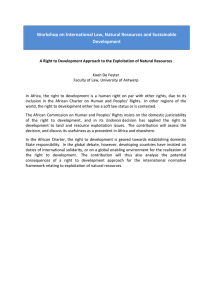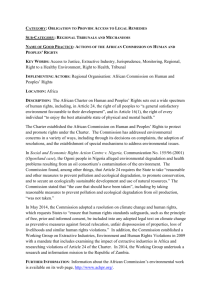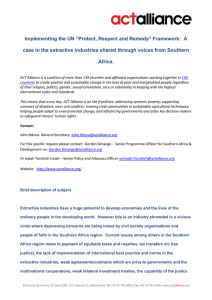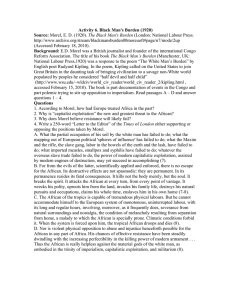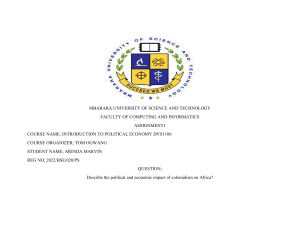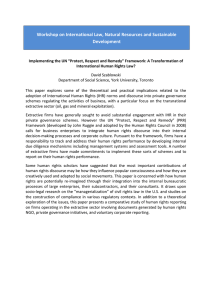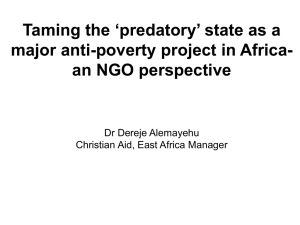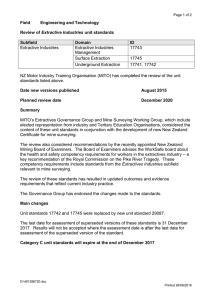An exploration of the political ecologies of African environmental development
advertisement
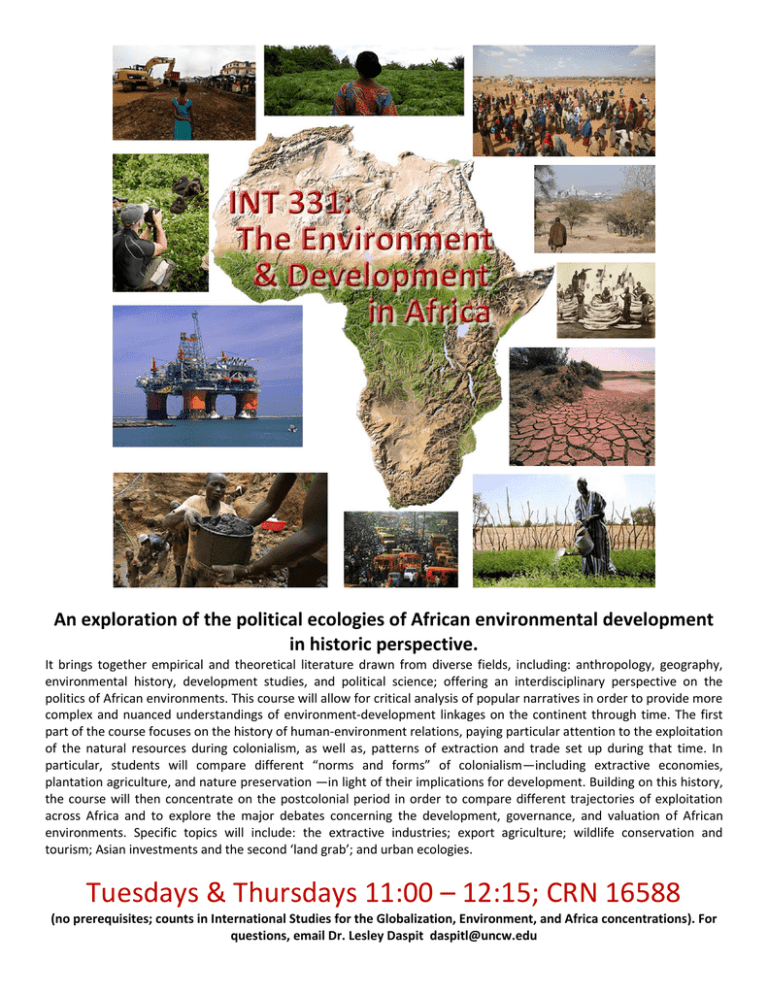
An exploration of the political ecologies of African environmental development in historic perspective. It brings together empirical and theoretical literature drawn from diverse fields, including: anthropology, geography, environmental history, development studies, and political science; offering an interdisciplinary perspective on the politics of African environments. This course will allow for critical analysis of popular narratives in order to provide more complex and nuanced understandings of environment-development linkages on the continent through time. The first part of the course focuses on the history of human-environment relations, paying particular attention to the exploitation of the natural resources during colonialism, as well as, patterns of extraction and trade set up during that time. In particular, students will compare different “norms and forms” of colonialism—including extractive economies, plantation agriculture, and nature preservation —in light of their implications for development. Building on this history, the course will then concentrate on the postcolonial period in order to compare different trajectories of exploitation across Africa and to explore the major debates concerning the development, governance, and valuation of African environments. Specific topics will include: the extractive industries; export agriculture; wildlife conservation and tourism; Asian investments and the second ‘land grab’; and urban ecologies. Tuesdays & Thursdays 11:00 – 12:15; CRN 16588 (no prerequisites; counts in International Studies for the Globalization, Environment, and Africa concentrations). For questions, email Dr. Lesley Daspit daspitl@uncw.edu
